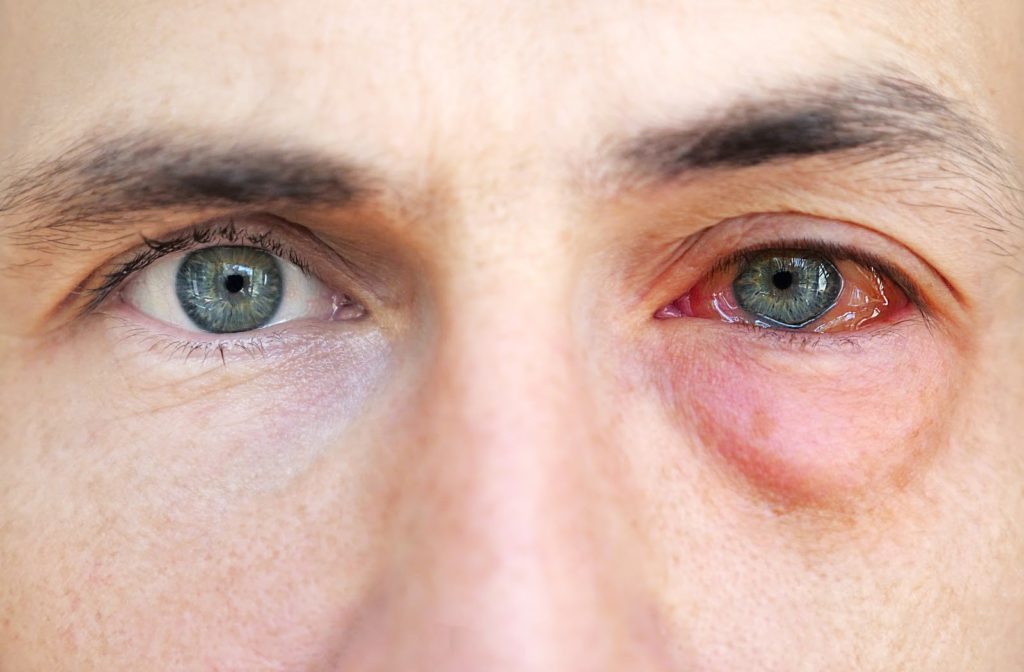- Intense itching and urge to rub
- Redness and burning
- Tearing / watery eyes
- Puffy eyelids, light sensitivity

- Tree, grass, and weed pollens (seasonal)
- Mold spores, especially in damp areas
- Indoor allergens (dust mites, pet dander)
- Windy days that stir up allergens
